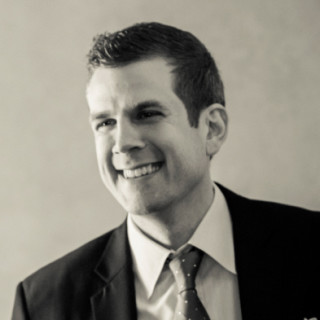
As I signed into Grand Rounds this morning, I glanced at the date on top of the paper: June 20. It has been exactly four years since I first pulled into the hospital parking garage, staring out at the brick fortress before me. It was imposing at the time, yet exciting with my first shift finding me at night covering all of the combined surgery services. I remember the daytime intern signing out to me, and the quiet acknowledgement that we were each as clueless as one another. We had witnessed sign-outs in the past and carried a few patients of our own in medical school.
I remember that, all of a sudden, I had become the responsible provider for 30 patients? It was trial by fire then.
Luckily, there was a senior in my corner that I could call for questions about anything. He responded to about one of every three of my queries overnight, leaving me guessing on the others. Without scrub access, I changed saturated dressings and laid awake in the call room bed in my dress clothes. Not knowing my way around the hospital, when heading to a rapid response call, I ended up locked outside the hospital on a dark alley at 2 a.m. The 14-hour shift was fraught with what felt like catastrophe at the time, but now has morphed into fond memories.
It seems almost audacious to have taken on the moniker “doctor” upon graduating from medical school. I felt much more like an encyclopedia of disease, understanding the academics and humanism of things, but much too timid and inexperienced to take action and resolve problems.
Now, four years later to the day, I can confidently say that I feel like a doctor. It’s incredibly similar to the transition to adulthood in that there’s no defining moment where adulthood (or doctorhood) is reached, except maybe when you realize that no such moment exists. We maintain our same core self with a little more experience and know-how. While in retrospect, I felt like I had my head on my shoulders four years ago, there are some things that I wish I knew back then.
So, new interns, here’s a little more guidance in a sea of advice you might be currently swimming through.
You Just Have to Get Through It
During my more idealistic years of frequent meditation, I learned that the hope for future salvation is a recipe for dissatisfaction in the present. There has been (and will continue to be) the promise of “a better future” for you throughout the process. Whereas before it was, “I just gotta get through medical school,” soon it will become, “I just gotta get through this difficult rotation” or “intern year” or “residency.” Don’t run yourself into the ground on a hedonic treadmill. Appreciate the challenges and blessings day-to-day, and realize that there will not be a day where all of your problems will disappear. They will be replaced by new and different ones. Appreciate the present, as it is really all you’ve got.
Absorb Everything You Can From All of the Channels Around You
The road to being a doctor has numerous lanes that you must travel through to “figure it all out.” The largest of these is your day-to-day clinical experience. No matter your chosen field, you will be well-served by asking yourself, at the end of every encounter, “What is the takeaway here? What have I learned?” Naturally, you will have to constantly read and study, and do so on a day-to-day basis. Find the time, even if it’s in small snippets. Some is better than none. Attend lectures, meetings, didactics, and conferences as well.
A huge and often overlooked part of this whole learning experience is managing people and learning how to work well as part of a care team. You will be interacting with every level of the system: patients, nurses, medical students, volunteers, senior residents and chiefs, attendings, department chairs, and so on. Find a way to be cordial to everyone, to use resources to your benefit, all the while maintaining some humility. You will surely find examples of chiefs and attendings that you aim to emulate, as they seem to have it all figured out. And there will be those individuals with attitudes and worldviews you want to avoid at all costs. There is something to learn from everyone.
Reputations Get Built Early
As humans, when it comes to reputations, we have memories like elephants. While the names of those we only work with in passing may elude us, we never forget colleagues who went out of their way to make our lives easier, nor those whose indolence increased our own workloads. If there were ever a time to put your best foot forward and show everyone around you what a great team player you are, it is in the beginning of residency. It will take time to build a reputation proper, but every experience is a chance to build your own.
Ask for Help
Because residency is so new to you, so many things will be outside your comfort zone and knowledge base. And that’s okay. Your most important job is to keep up with the information about your patients, and to keep them safe. As you find the balance between handling issues on your own and running things up the chain of command, err on the conservative side. No one expects you to pull the trigger on anticoagulating a patient with an overnight pulmonary embolism. Even the lesser questions, like how much pain medication to give someone, are fair game to ask for help with.
This guidance applies to the big picture as well. If the struggles in the hospital are leading to struggles outside the hospital, talk to someone and let them know. Asking for help is not a sign of weakness, it’s a sign of maturity.
There Will Be Good Times and Bad
As I reflected with a colleague over breakfast this morning, he summed it up pretty nicely: Some days will be terrible. People you knew well that morning will die. Their families will be devastated. You’ll make wrong clinical decisions. You won’t always have the answers. People will be passive-aggressive toward you. You’ll encounter stress and lose sleep. No one said it was easy.
However, you are going to learn an incredible amount every day for the next handful of years. That is a gift in and of itself. You will be presented with challenges in a controlled setting that requires you to call upon your training to find the answers. You’ll be given the opportunity to help patients in need. Society has invested in you, and now it’s your turn to give back to it. These gifts are wonderful, and ours to share with the world. Find a way to get better everyday. Let that be your purpose.
Brian Radvansky, MD is an anesthesiology and critical care resident and blogs at the Med School Tutors’ blog. He is also a 2018–2019 Doximity Author.







